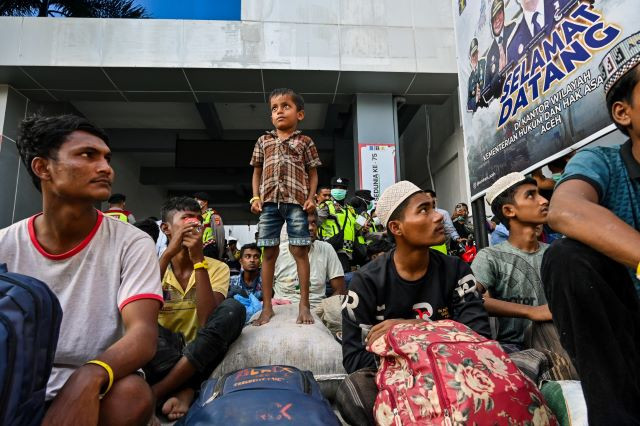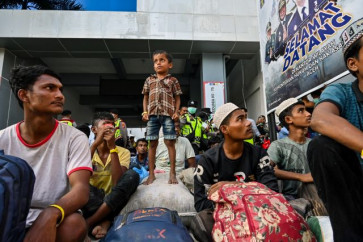Popular Reads
Top Results
Can't find what you're looking for?
View all search resultsPopular Reads
Top Results
Can't find what you're looking for?
View all search resultsHate speech fuels rejection of Rohingya refugees
Rohingya and Palestine share common ground in their plight – they are both victims of genocide in their respective countries, but receive vastly different treatment, almost at opposite ends of the spectrum, on social media.
Change text size
Gift Premium Articles
to Anyone
T
he rise of hate speech targeting Rohingya refugees on social media platforms by Indonesian citizens is a cause for concern. This alarming trend has seen an increase in hateful comments, online harassment and even calls for acts of violence against the already vulnerable refugee community.
The Rohingya refugees, fleeing persecution and violence in their home country of Myanmar, have sought refuge in Indonesia for decades. According to the United Nations High Commission for Refugees (UNHCR), over 1,200 Rohingya people have arrived in Indonesia, and an additional 300 followed later.
However, instead of the welcome and understanding they deserve, Rohingya refugees are often met with hostility and discrimination. This is particularly true on social media platforms, which should be places to spread empathy and compassion, but have turned out to be a breeding ground for hate speech and misinformation.
The number of social media users in Indonesia continues to grow from year to year. As of 2023, Indonesia has 213 million social media users, making it one of the largest internet markets in the world.
Generally speaking, social media users in the country are divided into two main categories: First, active users who are not afraid to reveal their real identities. Second, anonymous users whose real identities are unknown and who are free to post expressions, both positive and negative.
On platform X, formerly Twitter, hate speech to steer negative public opinion against Rohingya refugees can be easily found. More surprisingly, these hate narratives are spread by fan accounts or forums with large followers, whose senders do not disclose their identities.
The narratives built by these anonymous accounts contribute greatly to the polarization of public opinion of Rohingya refugees, which has the potential to spark conflicts. For example, some of these accounts posted screenshots of a fake UNHCR Indonesia account that stated, “I hope the Rohingya people can be accepted by the Indonesian people and the government can provide them with housing, food, shelter and an Indonesian ID card.”



















